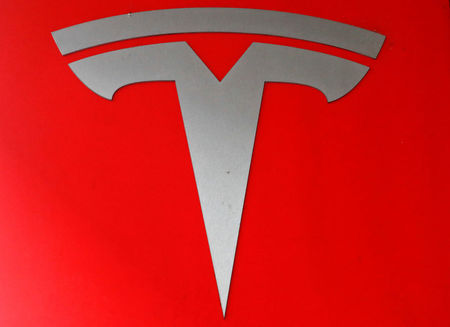Tesla: FSD price cuts could be ‘critical catalyst’ for shares, RBC says
2024.08.07 20:42

Investing.com– Tesla Inc (NASDAQ:) saw an increase in subscriptions of its full self driving software in the second quarter amid promotional offers and price cuts, with RBC analysts stating that a bigger cut in subscription prices could present a major upside for the stock.
RBC noted that cumulative miles driven under Tesla’s FSD software jumped 60% in the second quarter from the first, with the trend coming after a free trial in March and a price cut in the subscription to $99/month from $200/month.
But RBC noted that despite the increased usage, FSD penetration in Tesla’s fleet remained in the single digits, much weaker than that seen with its peers.
The brokerage argued that if Tesla lowered the price of its FSD offering to compete better with its peers, it could “significantly increase” FSD subscriptions.
“This could translate to immediately improved margins and more importantly, highlight the autonomy narrative and multiple on Tesla shares instantly, instead of waiting for robotaxis. It could also highlight the potential for Tesla to license FSD to other OEMs.”
“The company could at any moment cut its FSD pricing, which we believe would be a critical catalyst for shares.”
Still, RBC cut its price target on Tesla to $224 from $227, citing a much weaker delivery growth forecast for 2025. This came after the EV maker clocked dismal earnings and deliveries in the second quarter, as it grappled with softer margins, increased competition and production disruptions.
CEO Elon Musk has consistently touted the potential for FSD and robotaxis to become a major earnings driver. But FSD still remains a relatively niche product for Tesla, while the launch of its robotaxis was delayed to October from August.
Beyond FSD and robotaxis, RBC said Tesla’s energy storage revenues were set to pick up, while the firm was also set to benefit from higher regulatory credits.
Tesla’s stock is nursing a nearly 23% tumble so far this year, as the stock was battered by falling deliveries, while a string of price cuts, amid increased competition in China, dented its margins.








